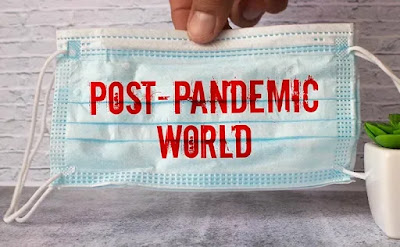 |
Plans to tackle misogyny in schools could take up to 20 years to have an impact on society, the safeguarding minister, Jess Phillips, has said as she outlined measures to protect women and girls. Phillips spoke the day after the National Police Chiefs’ Council (NPCC) estimated that 2 million women were victims of violence perpetrated by men each year in an epidemic so serious it amounts to a “national emergency.” —The Guardian, July 25, 2024 |
Today's News . . . Today's Poem
The New Verse News
presents politically progressive poetry on current events and topical issues.
Guidelines
Submission Guidelines: Send 1-3 unpublished poems in the body of an email (NO ATTACHMENTS) to nvneditor[at]gmail.com. No simultaneous submissions. Use "Verse News Submission" as the subject line. Send a brief bio. No payment. Authors retain all rights after 1st-time appearance here. Scroll down the right sidebar for the fine print.
Wednesday, July 31, 2024
THE FEARED GENERATION
Friday, April 14, 2023
MYTHINFORMATION
REMNANTS
Some smudged plexiglass remains,
having been more difficult to erect
and therefore more bother to remove.
Outside, the windswept tumbleweed
of a facemask, its torn elastic bands
flapping their tired fronds against
the asphalt with the other winter trash.
Refrigerator trucks rededicated
to the chilled storage and transport
of anything but the human deceased.
Small town campus ice arena
bearing the slightest scars of cot-legs
and privacy screens, the strange dream
of soldiers fading to fragments.
A ghost of myself, figment out of phase,
measures distances, haunts the far edges
of what bustles and churns, a clamorous
bullying desire for “normalcy”
almost passing for “normalcy.”
And of course, the counted dead,
the dead uncounted. The brutal
and insufficient arithmetic. The long
and the short, the landmine damage
lurking in bodies, biding time
until the next innocent footstep.
And of course, the virus, not cc-d
on the report of its demotion
from emergency to some other rank,
still lingers on the perpetual threshold:
overstayed guest or one just arriving?
It’s hard to know any more, if we ever could,
the coming from the going.
Tuesday, November 08, 2022
ELECTION DAY
Thursday, May 05, 2022
HOW TO HANDLE A LEAK
Wednesday, January 05, 2022
GLOBAL STRIKE!
 |
| Geneva (AFP) – A man ended a 39-day-long hunger strike outside the Swiss parliament on Thursday, declaring "Victory!" after the MPs agreed to be briefed by scientists on the latest climate change research. Guillermo Fernandez, who says he has lost 20 kilos since launching his hunger strike on November 1 to push for Swiss MPs to take climate change seriously, ended his fast by gingerly eating a banana outside the parliament building. "Victory!!!!" he announced on Twitter… "Finally the parliament will be confronted with the truth!" His announcement came after the president of the lower house of parliament Irene Kalin, of the Green Party, announced that scientists had been invited to brief MPs on May 2, 2022 about the latest research from the Intergovernmental Panel for Climate Change (IPCC). —France 24, December 9, 2021 |
Wednesday, August 05, 2020
REVIVAL
 |
| People protest against the Citizenship Amendment Bill—which allows Hindus from Afghanistan, Bangladesh, and Pakistan to get citizenship and exclude Muslims from the same countries—in New Delhi on December 7, 2019. Javed Sultan/Anadolu Agency/Getty Images via Vox, December 16, 2019 |
I have loved Julius Caesar in stories
from my English friends.
I have despised Julius Caesar in words,
striking upon ages.
I live today in burning home astray, my mother
carries small paper notes in tattered folded hands,
saree sifts light through, the only windows left.
the men in uniform are
almost here, asking for signed papers.
I have none. I wish
they did not have pilots fly overhead in our screams, I wish
the skies did not rain upon our chalk graffiti, because
paint was for rich. I wish
our written word wasn’t flung behind bars
nobody to see, I wish
this had never begun.
Caesar lived through citizen’s strangled breaths.
but today I can hear him say,
“My countrymen never cried,
for my death. Pilgrims, ragged urchins,
rum-cupped lips did not bawl from inns,
ivory clad nobles’ eyelids batted away at dry air,
but even in those sleeping beneath crumbling columns,
clothes carried not a
single tear. there was
no force, no sheer strength of circus led gladiator,
no power of cavalier battalion, that brought
forth water of the bodies that my countrymen wore.
until
someone spoke
Antony, my noble aide, Antony
the moonlight to remember when my rays
no longer served people their warmth
Molten silver, seeping shades of wrong
and glory mingled in lava beds,
thorn showers, Antony’s words,
bitter water came streaming forth,
chiseled edges, Antony’s words,
cracks to a country’s soft minds,
breaking
stealthily through brittle floodgate woes.”
And thousands of years later, come such
a time of dark pits laden with the bodies of
my robed brethren.
a time of words printed in white against white pages
the children born with sight never see.
a time of petty gains made from my father’s caps
pieces of marble tablet remain, which is mosque, which is tomb?
a time when nobody can say.
today is here because yesterday was deaf to the pleas
of a thousand years.
are Antonys only built for dictators?
today is here, because the day I had a home, those on
the other side would walk confidently past it.
for when I still found chalk to write,
the only hands that rose was to cover people's eyes.
and now
masks are here to silence us.
a viral emergency is the cloak everyone wears around me,
I was born here and I am to leave,
can tears of rage be washed with bottles of hand sanitizer?
I didn’t need arms to fight,
I needed you, I needed her, I needed many.
Monday, February 25, 2019
THE ROOM WHERE IT HAPPENS

Tuesday, August 25, 2015
THE FATHER IN SUMMER PLAINETH FOR HIS SON
O western fire
Take this day back
Reverse the truck
Unburn the wreck.
The fire fighters
Of the forest service
Hell-bent to save us,
Rain down on them,
Drown every forest plant.
Then bring him home,
Because for every day to come
I can't.
Cally Conan-Davies hails from Tasmania. Her poems can be found in periodicals such as The Hudson Review, Subtropics, Poetry, Quadrant, The New Criterion, The Virginia Quarterly Review, The Sewanee Review, The Southwest Review, The Dark Horse, Harvard Review and various online journals.



